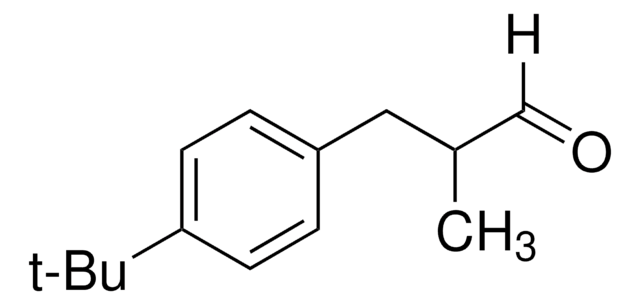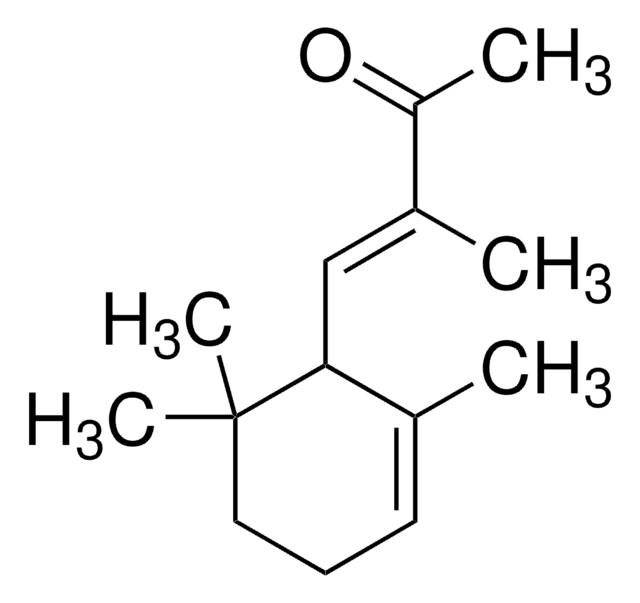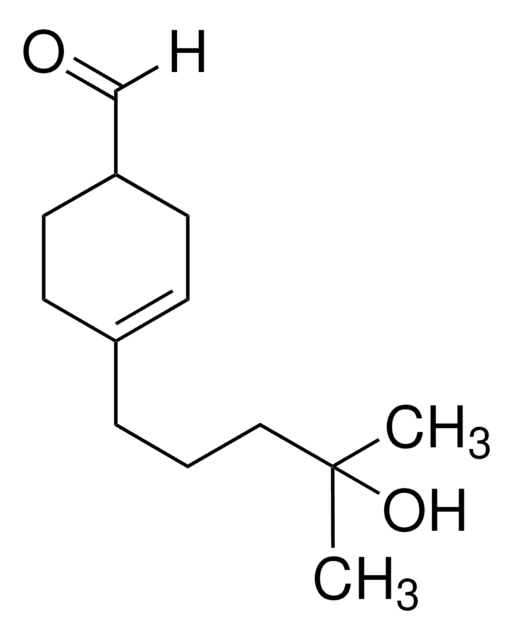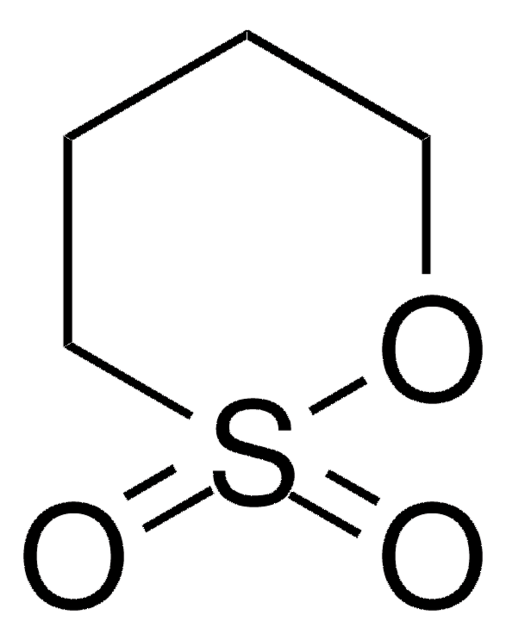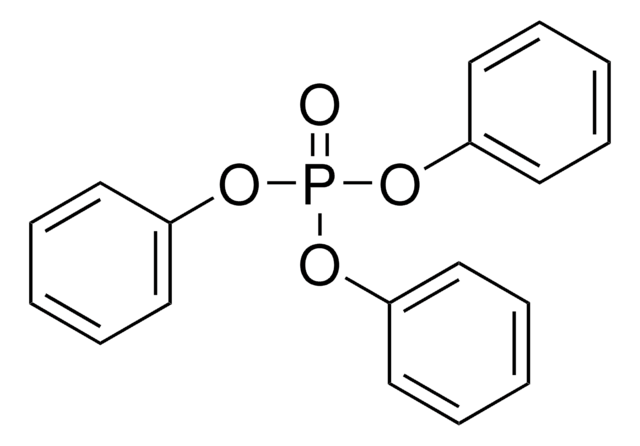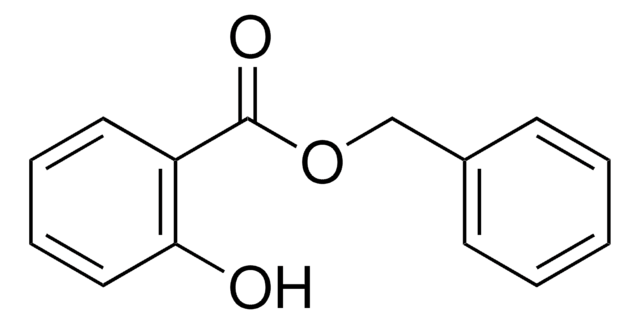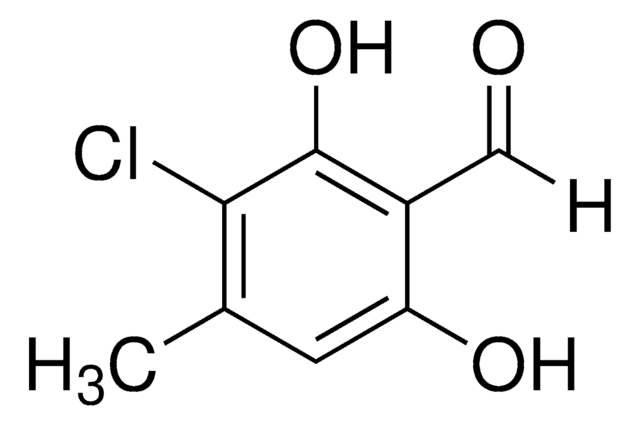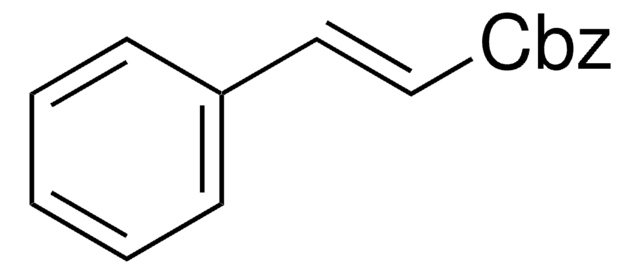43884
2-(4-tert-Butylbenzyl)propionaldehyde
analytical standard
Synonym(s):
4-tert-Butyl-α-methyl-benzenepropanal, 4-tert-Butyl-α-methyl-hydrocinnamaldehyde, Butylphenyl methylpropional, Lilial
About This Item
Recommended Products
grade
analytical standard
Quality Level
assay
≥96.0% (GC)
shelf life
limited shelf life, expiry date on the label
impurities
≤0.3% water
refractive index
n20/D 1.504-1.506
density
0.946 g/mL at 20 °C (lit.)
application(s)
cleaning products
cosmetics
food and beverages
personal care
format
neat
storage temp.
2-8°C
SMILES string
[H]C(=O)C(C)Cc1ccc(cc1)C(C)(C)C
InChI
1S/C14H20O/c1-11(10-15)9-12-5-7-13(8-6-12)14(2,3)4/h5-8,10-11H,9H2,1-4H3
InChI key
SDQFDHOLCGWZPU-UHFFFAOYSA-N
Looking for similar products? Visit Product Comparison Guide
General description
Application
- Human urine samples by ultra-high performance liquid chromatography-tandem mass spectrometry (UHPLC-MS/MS) equipped with electrospray ionization (ESI) source and multiple reaction monitoring (MRM) mode of detection.
- Deodorants and air fresheners by sonication extraction coupled with gas chromatography-mass spectrometry (GC-MS).
- Scented consumer products by GC-MS as well as GC in combination with olfactometry.
Analysis Note
Recommended products
signalword
Danger
Hazard Classifications
Acute Tox. 4 Oral - Aquatic Chronic 3 - Repr. 1B - Skin Irrit. 2 - Skin Sens. 1
Storage Class
6.1C - Combustible acute toxic Cat.3 / toxic compounds or compounds which causing chronic effects
wgk_germany
WGK 3
flash_point_f
174.2 °F - closed cup
flash_point_c
79 °C - closed cup
Choose from one of the most recent versions:
Already Own This Product?
Find documentation for the products that you have recently purchased in the Document Library.
Customers Also Viewed
Our team of scientists has experience in all areas of research including Life Science, Material Science, Chemical Synthesis, Chromatography, Analytical and many others.
Contact Technical Service
